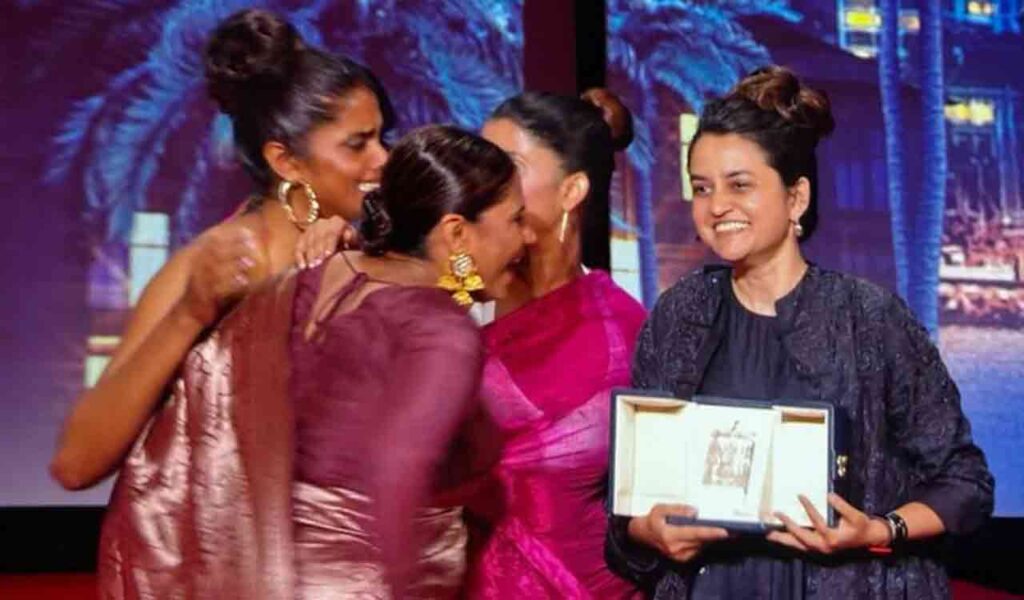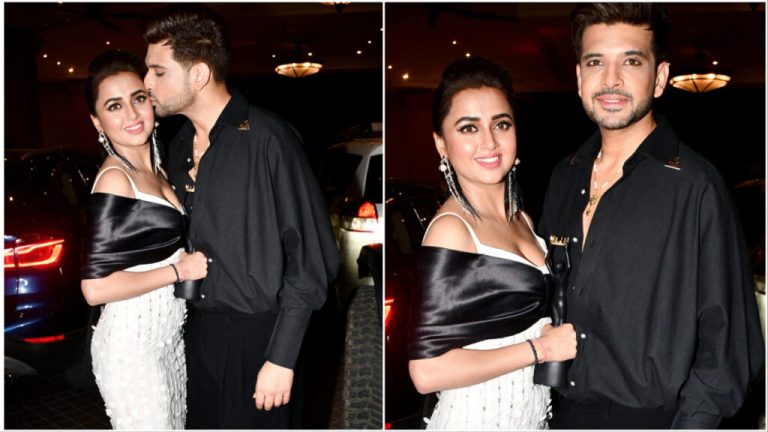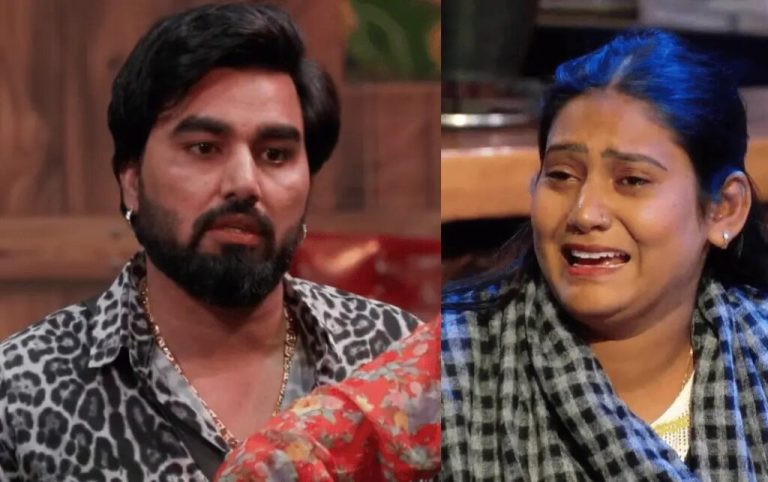Payal Kapadia’s ‘All We Imagine As Light’ settles for Grand Prix at Cannes-Read
It was a significant moment for Indian cinema, as demonstrated by the extended standing ovation received by the director and her three lead stars from the full-house audience.
Updated On – 26 May 2024, 10:52 AM
Cannes: So near, yet so far. Payal Kapadia’s ‘All We Imagine As Light’ came home with the Grand Prix, but not the Palme d’Or, from the glittering awards event that brought the curtains down on the 77th Cannes Film Festival on Saturday night.
Still, it was a big moment for Indian cinema, which was evident from the extended standing ovation that the director and her three lead stars got from the house-full audience.
It was in as far back as 1994 that the festival’s prestigious competition section featured an Indian film — Malayalam director Shaji Karun’s ‘Swaham’, which did not win any award. The Palme d’Or that year, incidentally, went to Quentin Tarantino’s classic, ‘Pulp Fiction’.
The Palme d’Or went to American filmmaker Sean Baker for ‘Anora’ nine years after he was named one of the Directors to Watch by ‘Variety’, which calls the film “a rowdy whirlwind romance between an exotic dancer (Mikey Madison) and the obscenely rich son of a Russian oligarch (Mark Eydelshteyn).
Baker, notes ‘Variety’, is the first American director to clinch the top prize at Cannes after Terrence Malick earned it for ‘The Tree of Life’ in 2011.
Kapadia received the award from Hollywood star Viola Davis along with the film’s three lead actors — Kani Kusruti, Chhaya Kadam and Divya Prabha.
In her acceptance speech, Kapadia started by giving a shout-out to the Best Director award winner, Miguel Gomes from Portugal, whose work she said she followed.
She then went on to make a statement on the value of female friendship, as opposed to the stereotypical representation of women pitting themselves against each other.
Kapadia also urged the festival’s decision-makers not to make the world wait “for another 30 years” to see an Indian film in the competition section.
Reacting almost immediately after the announcement, Anurag Kashyap raised a toast to the hope and inspiration that 38-year-old Kapadia has become to an emerging generation of independent filmmakers.
India has had a great run at the 77th Cannes Film Festival. Debutante actress Anasuya Sengupta got the Best Actress prize at the festival’s Un Certain Regard segment for her performance in Bulgarian director Konstantin Bojanov’s ‘The Shameless’.
Mysuru doctor-turned-filmmaking aspirant Chidananda Naik’s Film & Television Institute of India (FTII) student film ‘Sunflowers Were the First Ones to Know…’, which he made in just four days, won the first prize at the ‘La Cinef’ segment of the festival.
Also honoured at Cannes was the veteran cinematographer, Santosh Sivan, who became the first Asian to be awarded the prestigious Pierre Angenieux ExcelLens in Cinematography award named after the inventor of the zoom lens that revolutionised cinematography.
Hailed by the BBC as a “magical ode to nocturnal Mumbai”, ‘All We Imagine As Light’ has been described as “a delicate triple portrait of women who have devoted their lives to helping others, but have received precious little in return in terms of money, status or freedom.”
As would be expected from a Payal Kapadia film, it makes a strong political statement as well by showing one of the characters, a Hindu, nurturing a relationship with a young Muslim man.
The film’s climax, in more than one way, is the scene of them making love in a forest near the beach town where the three lead characters decide to have a little break.
The stars of the Indian-French co-production are Kani Kusruti, who audiences outside Kerala would identify as the one who plays the strong-willed personal secretary of Huma Qureishi’s character in ‘Maharani’, Chhaya Kadam, last seen bringing the house down with her stellar performance in ‘Laapataa Ladies’, and Divya Prabha.
Kapadia, who’s acclaimed artist Nalini Malini’s daughter and FTII graduate, won the Golden Eye at Cannes in 2021 for her politically incendiary debut documentary, ‘A Night of Knowing Nothing’.
The jury for the competition films was presided over by the ‘Barbie’ hitmaker Greta Gerwig. Its members, a number of them women, included J.A. Bayona, Spanish filmmaker; Ebru Ceylan, Turkish actress and screenwriter; Pierfrancesco Favino, Italian actor-producer; ‘Killers of the Flower Moon’ star Lily Gladstone; Eva Green, French actress; Japanese filmmaker Hirokazu Kore-eda; Nadine Labaki, Lebanese actress and filmmaker; and French actor Omar Sy.
Here’s the complete roster of the other winners who were honoured on Saturday night:
Jury Prize: Former Palme d’Or winner Jacques Audiard’s Spanish film ‘Emilia Perez’. The Mexico-set musical — about a cartel boss who disappears in order to re-emerge as a woman, according to ‘Variety’ — stars Zoe Saldaña, Selena Gomez and trans star Karla Sofía Gascon.
Best Director: Miguel Gomes from Portugal for ‘Grand Tour’, which blends colour and black- and-white cinematography to tell the early 20th-century story of a British civil servant who attempts to flee his fiancee by hopping from one Asian country to the next.
Best Actor: Jesse Plemons, a.k.a. Kirsten Dunst’s husband, ‘Kinds of Kindness’ (director: Yorgos Lanthimos, who was in the news not so long ago for his Emma Stone film, ‘Poor Things’). Plemons, says ‘Variety’, plays three roles, those of submissive businessman, grieving police officer and bisexual cult member in this surrealist satire.
Special Award for Best Screenplay: ‘The Seed of the Sacred Fig’, Iranian dissident director Mohammad Rasoulof’s latest film, for which he was condemned to an eight-year prison sentence back home
Best Actress: The quartet of stars of the Spanish film ‘Emilia Perez’ — Adriana Paz, Zoe Saldana, Karla Sofia Gascon and Selena Gomez. Lily Gladstone of ‘Killers of the Flower Moon’, who was on the jury presided over by Greta Gerwig, described the award as “the harmony of sisterhood”.
Best Screenplay: ‘The Substance’ (starring Demi Moore), Coralie Fargeat
Camera d’Or (which is awarded to a first film): ‘Armand’, director Halfdan Ullmann Tondel, who, incidentally, is grandson of Norwegian actress Liv Ullman and Swedish filmmaker Ingmar Bergman.
Special Mentions: ‘Mongrel’ (directed: Chiang Wei Liang) and ‘Bad For A Moment’ (director: Daniel Soares)
Short Film Palme d’Or: ‘The Man Who Could Not Remain Silent’ (director: Nebojsa Slijepcevic)






